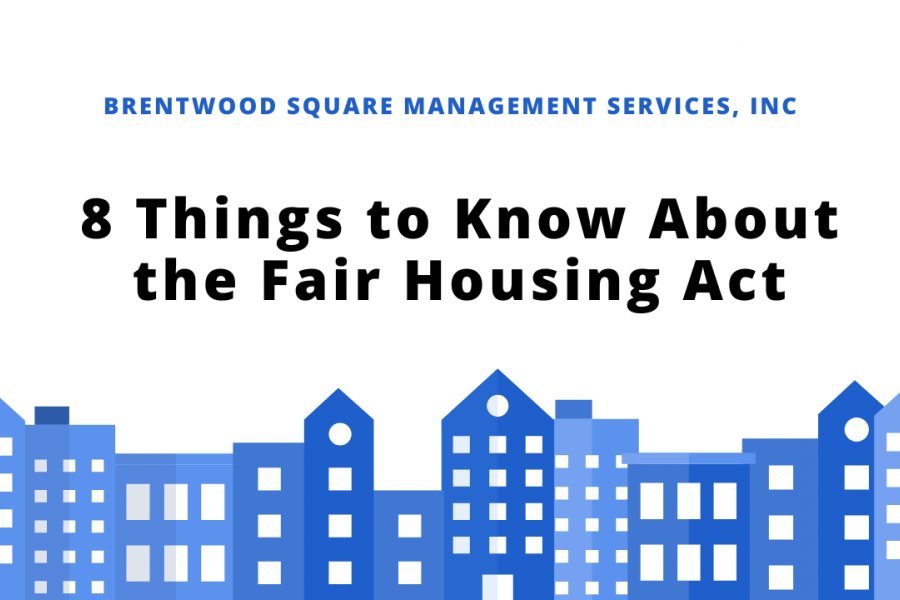
The Fair Housing Act (FHA), enacted as Title VIII of the Civil Rights Act of 1968, serves as the foundation of anti-discrimination housing laws in the United States.
It ensures that all individuals have equal access to housing opportunities, regardless of specific personal characteristics. For landlords, understanding and adhering to the FHA is not just a legal obligation but a reflection of ethical and fair business practices. Keep reading to learn more!
The Protected Classes
The Fair Housing Act protects individuals against discrimination based on specific characteristics. These protected classes include:
- Race
- Color
- Religion
- Sex (including gender identity and sexual orientation)
- National Origin
- Familial Status (presence of children under 18, pregnant women, or individuals securing custody of children)
- Disability
As a landlord, you must ensure that every decision — from advertising your property to screening applications and managing tenant relations — is free from discrimination
This applies to all aspects of housing, including setting lease terms, responding to maintenance requests, and terminating leases. Discrimination, whether intentional or unintentional, can lead to significant legal consequences.

Advertising Without Discrimination
Your advertising practices set the tone for your commitment to fair housing. The FHA prohibits discriminatory language in advertisements.
Avoid phrases that suggest a preference or limitation, such as “ideal for single professionals” or “no children allowed.” These could be interpreted as discouraging certain groups from applying.
Instead, focus on describing the property’s features and amenities, such as its proximity to parks, schools, or public transportation, without implying a preference for a specific demographic.
Highlight how these features contribute to convenience and appeal, which can support rent collection by attracting a reliable and diverse pool of applicants. Keep your language neutral, professional, and inclusive.
Creating a Fair Tenant Screening Process
Tenant screening is a crucial step in protecting your property and ensuring you find reliable tenants.
However, it’s essential to apply the same criteria to all applicants to avoid allegations of discrimination. Establish clear, objective screening standards that focus on factors like credit history, rental history, income verification, and references.
For example:
- Set a consistent income-to-rent ratio for all applicants.
- Require the same documentation from everyone, such as proof of income or ID.
- Communicate the criteria clearly in writing and apply them uniformly.
Do not make exceptions or impose additional requirements based on a tenant’s protected class. Consistency in your process is key to avoiding potential violations.

Accommodating Tenants with Disabilities
One of the most significant aspects of the FHA is its protection of individuals with disabilities. Landlords are required to provide reasonable accommodations and allow reasonable modifications for tenants with disabilities. These accommodations could include:
- Allowing service animals or emotional support animals in a no-pet property.
- Installing grab bars in bathrooms or wheelchair ramps.
- Reserving a designated parking spot close to the unit.
While the tenant may be responsible for the cost of modifications, you must permit such changes unless they impose an undue financial or administrative burden.
Being proactive and understanding the needs of tenants with disabilities not only ensures compliance but also fosters goodwill and inclusivity.
Avoiding Retaliation against Tenants
The FHA prohibits retaliation against tenants who assert their rights under the law. Retaliatory actions, such as raising rent, issuing eviction notices, or refusing to make repairs after a tenant files a complaint or participates in an investigation, are strictly forbidden.
To avoid situations that could be construed as retaliation:
- Address tenant concerns promptly.
- Document all tenant communications, especially maintenance requests and their resolutions.
- Maintain a professional attitude even when disputes arise.
Retaliation claims can lead to legal consequences, so strive to resolve conflicts amicably and within the bounds of the law.

Record-Keeping and Documentation
Keeping detailed records of all interactions, decisions, and policies is an essential best practice for landlords.
Thorough documentation not only demonstrates your compliance with the FHA but also protects you in case of disputes. Here are some key records to maintain:
- Rental applications and screening results.
- Copies of advertisements and marketing materials.
- Lease agreements and amendments.
- Records of property maintenance requests and responses.
- Correspondence with tenants, including emails and letters.
These records can serve as evidence that your decisions are based on objective criteria, not discriminatory practices.
Organizing and storing these documents securely is a vital step in professional property management.
Hiring a Professional Property Management Company
The complexities of the Fair Housing Act can be daunting, especially for landlords managing multiple properties. Partnering with a professional property management company can provide significant advantages:
- Expertise in Compliance: Property managers are knowledgeable about federal, state, and local housing laws, ensuring your practices align with legal standards.
- Standardized Processes: A property management company can implement consistent policies for advertising, screening, and tenant relations, reducing the risk of unintentional discrimination.
- Conflict Resolution: Experienced property managers are skilled at handling disputes and mediating tenant issues, which can help you avoid legal challenges.
- Time and Efficiency: Delegating day-to-day property management tasks allows you to focus on other priorities while ensuring your investment is well cared for.
When choosing a property management company, ask about their experience with fair housing compliance and their commitment to fostering inclusive communities.
Their expertise can safeguard your property and reputation while maximizing tenant satisfaction.
Conclusion
As a landlord, compliance with the Fair Housing Act is not optional. It’s a legal requirement that also reflects your commitment to providing equitable and inclusive housing opportunities.
By understanding the protected classes, creating unbiased policies, accommodating tenant needs, and maintaining thorough records, you can mitigate legal risks and uphold ethical business practices.
Ensuring your property management practices align with the FHA isn’t just about avoiding penalties — it’s about creating a welcoming and diverse community that benefits both you and your tenants. If you need assistance, contact Brentwood Square Management Services.
